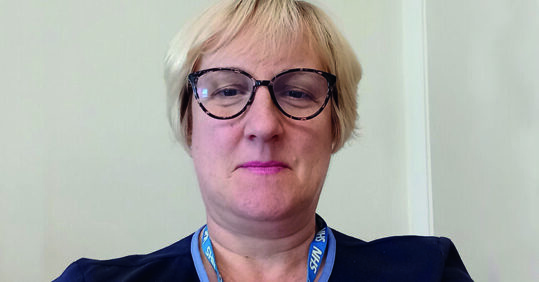Lessons in leadership: Speaking out for nursing

A place on the Local Medical Committee board has allowed Ruth Colbeck to provide a unique perspective for her healthcare colleagues and advocate for the future of general practice nursing

General practice nursing has often been looked on as an ‘easy option’ – offering nurses regular work without having to do unsocial hours. In fact, the role is like no other, and has growing influence within primary care. We have a huge scope of practice and expertise, literally caring for our patients from cradle to grave. Some days you can find yourself doing a baby vaccination clinic in the morning, and then seeing 80- and 90-year-olds in the afternoon to review their long-term conditions.
So why do we often feel that nurses in general practice don’t have a voice or a seat at the table?
GP surgeries are individual businesses that provide NHS services through the GP contract. The way this work is carried out can differ greatly between surgeries. They can often follow a hierarchical structure, with doctors being partners, acting as both employers and managers. This can make it awkward for nurses to speak up, walking a fine line between ensuring patient safety and ‘rocking the boat’ with their employer. Other areas such as pay, and terms and conditions vary widely too.
Related Article: Lessons in leadership: Nursing leadership in an ICB
I think there is often a lack of understanding about what general practice nurses can do across the different levels – nursing associates, senior practice nurses, advanced clinical practice nurses. There needs to be greater appreciation of the value of each of those roles, the differences between them and how we can complement each other and the medical and administrative staff as well.
We need more publicity about what the role of general practice nursing entails, both for service users and our colleagues.
I have worked in general practice for 17 years, and started out with little understanding of the role and its differences from working within other areas of the NHS. During this time, I have developed the clinical part of my role and also built up my leadership skills.
I am naturally quite chatty and inquisitive, but have been further empowered by my role as Leeds Local Medical Committee (LMC) non-medical rep. The LMC put out an advertisement asking if anyone non-medical was interested on being on the board and, even though I didn’t really have a clue about what it entailed, I put together a short statement about myself, what I do and what I hoped to bring to the LMC, and was voted onto the board.
Through the role I have been able to get a broader perspective and understanding of why certain decisions are made at that level. You realise it’s not just that you are not being listened to. Understanding the wider context improves your confidence to contribute, and you can offer workarounds. ‘Ok, we can’t do it like that, but what about doing it this way?’ Gaining this broader appreciation gives you greater self-belief and negotiating power.
I’m also a nurse rep on the Yorkshire faculty of the Royal College of General Practitioners, which again offers a bigger-picture perspective. It enables you to identify where your role is complementary to your colleagues’ and how theirs complements yours, and assess how you can work as a team more effectively, rather than fighting for glory. It’s not about who’s best in practice, it’s about who’s working most effectively and cohesively to provide the best outcomes for patients.
Related Article: Nursing leadership is needed now more than ever
Both roles show me that if I speak up, some people will listen. Not everybody, but some will, and that sets a ripple effect and makes positive changes.
I am passionate that such opportunities should be promoted to nurses, who should in turn be encouraged and supported to apply for them. They can offer huge professional development by equipping nurses with the knowledge of what is happening in their practice and surrounding area, and giving them the confidence to offer solutions.
As well as encouraging our existing workforce, we also need to encourage more young people to explore practice nursing as a valid career option. Providing placements for students will help do this and also dispel the common misunderstanding about needing to work in the NHS when they first qualify.
I have now moved from working in a GP surgery to a primary care network (PCN), across a group of practices working together to provide services at scale – such as happened with the Covid-19 vaccination rollout. My role is 50/50 clinical and leadership. This allows me to continue the face-to-face patient contact that I love, while also being able to support and encourage the nursing teams across the area.
I can honestly say I love working in general practice. I’m now seeing adult patients who were children that I vaccinated, some of whom are even bringing in their own children. You get to provide continuity of care over years and become part of the community. And I don’t know what could be much more fulfilling than that.
Related Article: Climbing the leadership ladder: Why female nurses can struggle to reach the top
Ruth Colbeck is lead nurse at West Leeds Primary Care Network

See how our symptom tool can help you make better sense of patient presentations
Click here to search a symptom

